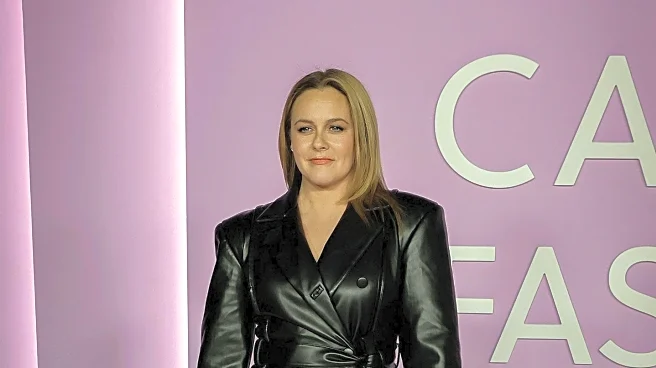Rapid Read • 7 min read
Texas manufacturers are facing significant challenges due to President Trump's tariff policies and high interest rates, according to a survey by the Federal Reserve Bank of Dallas. The survey highlights the difficulties faced by various industries, including furniture and transportation equipment manufacturing, as they navigate the unpredictable tariff landscape. Many businesses report being negatively impacted by the tariffs, with 70% of manufacturers surveyed expressing concerns. The tariffs, intended to boost domestic manufacturing, have instead created uncertainty and financial strain for some companies. Additionally, high interest rates have compounded these issues, leading to calls for the Federal Reserve to consider rate cuts to alleviate pressure on the labor market.
AD
The impact of tariffs and interest rates on Texas manufacturers is significant, as it affects the broader U.S. manufacturing sector and economic stability. The tariffs, while aimed at promoting domestic production, have led to increased costs for businesses, which are often passed on to consumers. This situation could result in higher prices for goods and services, affecting consumer spending and economic growth. The uncertainty surrounding trade policies and interest rates may also deter investment and expansion in the manufacturing industry, potentially leading to job losses and reduced economic output. The Federal Reserve's decision on interest rates will be crucial in determining the future economic landscape.
Manufacturers are hopeful that President Trump's tax and spending cut package, known as the One Big Beautiful Bill, will provide relief and stimulate the industry. However, the effectiveness of this package remains uncertain, and businesses are seeking immediate action to address the challenges posed by tariffs and interest rates. The Federal Reserve may consider interest rate cuts to support the labor market and mitigate the negative effects of trade tensions. Stakeholders, including industry leaders and policymakers, will need to collaborate to find solutions that balance the goals of domestic manufacturing growth with economic stability.
AD
More Stories You Might Enjoy











